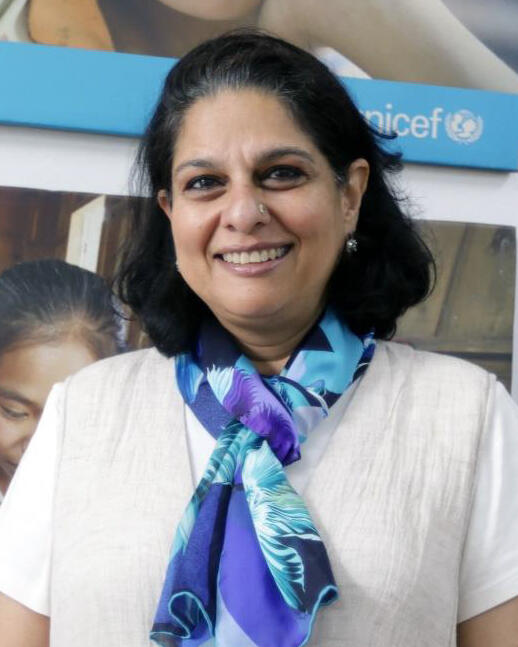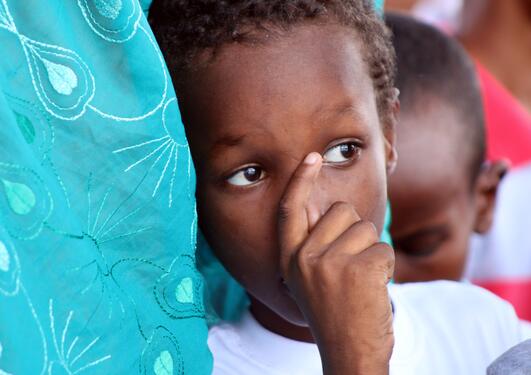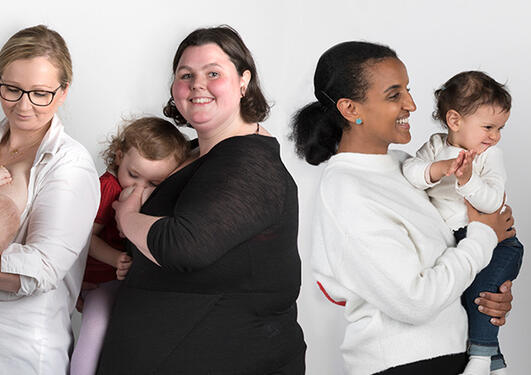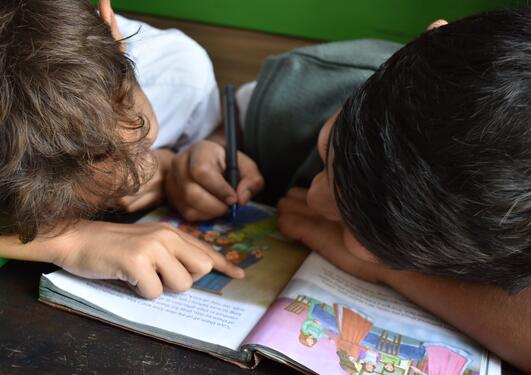Nurturing care - Early action for the impact of a lifetime
Ensuring the nutrition, protection and stimulation for children not only allows children to reach their full potential but also positively shape the societies and economies of theirs, and our, future.

Hovedinnhold
Pia Rebello Britto
UNICEF Representative
The Lao People’s Democratic Republic (PDR)
Janneke Hartvig Blomberg
Chief of Nutrition
UNICEF Lao PDR
The physical and social environment, including the nutrition, protection and stimulation, in the first few years of a child’s life influence the ability of children to think, solve problems, communicate, express emotions and form relationships. This positive cognitive, social, emotional and physical development of children further shapes their social, emotional, learning and health outcomes for a lifetime.
While healthy early childhood development is important for all children, nurturing and caring environments further allow the most disadvantaged children to acquire the skills they need to move out of adversity and into a better life which, in turn, position them stronger to nurture and care for their own children, thereby halting intergenerational cycles of disadvantage.
Investments to improve early childhood development are both effective and cost-effective, with the highest economic returns from investments in a child’s earliest moments, and can be delivered through a range of systems including health, nutrition, education, water, sanitation and protection combined with supportive enabling environment such as family friendly policies.
Ensuring the nutrition, protection and stimulation for children not only allows children to reach their full potential but also positively shape the societies and economies of theirs, and our, future.
Pia Rebello Britto, Ph.D. is the UNICEF Representative to Lao People’s Democratic Republic (PDR) since August 2020. Dr. Britto, a national of the United States of America, and Person of Indian origin, brings extensive experience in international development and early childhood development (ECD) policy and programmes.
Prior to this position, Dr. Britto was the Global Chief and Senior Advisor of Early Childhood Development at the UNICEF Headquarters in New York since April 2013. In this capacity, she provided management and technical oversight to UNICEF’s global ECD portfolio across 150 country offices, spearheading a global movement for early childhood, to give every child the best start to life. She also served as acting Deputy Representative of the UNICEF Lao PDR Country Office in 2019.
Before joining UNICEF, Dr. Britto was Assistant Professor at Yale University; and Research Scientist at Teachers College, Columbia University, where she obtained her doctoral degree in developmental psychology. While at Yale University, one of the foci of Dr. Britto’s research was understanding governance and finance of social sector systems that deliver services for young children and families in Lao PDR. Dr. Pia Rebello Britto is the recipient of several national and international awards and is widely cited in the media in recognition for her work. She also holds an extensive publication record of books, articles and reports.
Janneke Hartvig Blomberg is Chief of Nutrition at UNICEF Lao PDR where she leads a team to provide technical leadership and support to the Government, development partners and others for the improvement of data, knowledge, policies and legislation for nutrition; improved quality, scale and demand for the delivery of high impact nutrition services across systems; and for the change in key nutrition related behaviors of caregivers, parents and others. Prior to this she led the UNICEF nutrition programme in Sudan to ensure the delivery of essential nutrition services to millions of children across challenging contexts including active conflict, refugee response, protracted emergencies, flooding and cholera.
Prior to joining UNICEF, Janneke was the Senior Manager and Deputy Director of the Maternal, Infant and Young Child Nutrition (MIYCN) Global Program at the Global Alliance for Improved Nutrition (GAIN) providing technical guidance, management and support to teams across various contexts and continents. She worked nearly half a decade as a Nutrition Specialist with the World Bank, prior to which she was the coordinator for the development and roll out of the BSc degree in “Public Health Nutrition and Food Policy” in Copenhagen, Denmark.
This keynote addess is free and open to the public.






